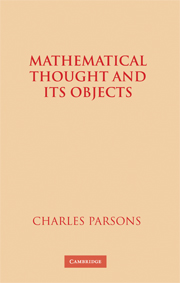5 - Intuition
Published online by Cambridge University Press: 24 November 2009
Summary
Intuition: Basic distinctions
The concept of intuition occupies an uneasy place among the different notions deployed by philosophers and others in order to describe knowledge and belief. Some such notions, such as that of knowledge itself, have been thought to be definite enough in prephilosophical usage, and of sufficient importance, so that considerable philosophical effort has been devoted to their “analysis,” in the hope of giving, in clearer terms, necessary and sufficient conditions for knowledge, or, failing that, stating interesting general principles. Others have been from the beginning technical terms, so that no one has hoped to get from them a better understanding than can be derived from philosophers' explanations. Kant's terms ‘analytic’ and ‘synthetic’ would be examples.
The word “intuition” undoubtedly has a prephilosophical use from which its use in philosophy in some way derives. But there does not seem to be conviction on the part of philosophers that there is a fundamental notion behind that use, which philosophical analysis might make clear. By contrast, at least in comparatively recent discussion, there is also not a technical usage to which writers discussing intuition have been ready to defer, except in rather restricted contexts such as the interpretation of Kant. Thus, in his useful encyclopedia article on intuition, Richard Rorty goes so far as to say that “nothing can be said about intuition in general.”
Information
- Type
- Chapter
- Information
- Mathematical Thought and its Objects , pp. 138 - 185Publisher: Cambridge University PressPrint publication year: 2007
